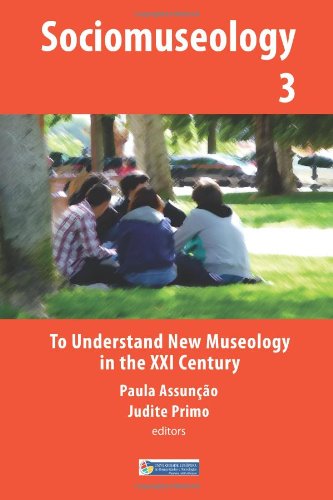To Understand New Museology in the XXI Century: Volume 3 (Sociomuseology) - Softcover

Zu dieser ISBN ist aktuell kein Angebot verfügbar.
Alle Exemplare der Ausgabe mit dieser ISBN anzeigen:
Reseña del editor:
In the last decades there has been a profound change in the world of museums as well as in new museology. In 1992, the Declaration of Caracas called for the acknowledgement of museums as means of communication in the service of communities. It proposed that museums would become social managers, working with communities to transform reality. Three years later, a publication in Brazil aimed at discussing the impact of meetings such as this one and of others, including the Round Table of Santiago of 1972. It stated that, despite the fact that ideas upon which new museology was based have become influential in museological theory, too few changes had taken place in the daily practice of traditional museums. I believe that the publication pre-empted the major turning point in relations between museums and society. Towards the end of the 90’s, many forces contributed to the opening of a new chapter on participation in museum affairs. The sustainable development agenda, social inclusion policies in the UK, the strengthening of emancipation movements (such as the indigenous movements in North America) and the growing multiculturalism in European countries promoted a new age of transformations in museums. A renewed participation paradigm began to focus on the relations between museums and multiple (some new) stakeholders. Dealing with stakeholders implied negotiation, influence and sharing of ownership. These changes meant that the so-called traditional museums (an antagonism introduced by the new museologists themselves) shared many of the preoccupations of the new museology. In different parts of the globe, various ways of interacting with groups in society added further opportunities of using heritage as a resource and as a tool for understanding and transforming the world. In the English-speaking circles in Europe, this is usually labelled new museology too. The term was coined by Peter Vergo in 1989 and since then has been widely used with reference to critical practice in museums, which involves work with communities. It is important to note that the “Latin” new museology and the “British” new museology are not the same. Although often mistaken for each other, they have fundamentally different approaches to social development, as explained in the articles that follow this introduction. However, both are part of the same attempt to take museums into an age of increased democratization of museological tools and heritage processes. There is much to learn in dialogue. In the new millennium changes continue to happen. Social movements, for instance, are appropriating heritage tools. Networked modes of organizing knowledge and action in society deeply influence museums. The same way, the modes and means of the “Latin” new museology are also developing in time. The increasing human mobility, immigration and cultural hybridization, for example, represent fundamental forces of change. “Classic” types of new museums such as the ecomuseum multiplied in rural areas, not in urban environments. They were focused on the concept of locality-bounded communities, on local development and on the territory. But what happens when societies become more global, when the territory becomes more fragmented and fast-changing? What happens when the concept of community and the organization of social action take other forms? What happens when what makes a group of people into a community is not mainly their shared experience in the territory, but their shared condition in society as in the case of minorities? What happens when what drives people to action is mainly the desire to propose a new project of society as is the case with social movements, many times operating in networks?
„Über diesen Titel“ kann sich auf eine andere Ausgabe dieses Titels beziehen.
- VerlagCreateSpace Independent Publishing Platform
- Erscheinungsdatum2013
- ISBN 10 1489598219
- ISBN 13 9781489598219
- EinbandTapa blanda
- Auflage2
- Anzahl der Seiten100
(Keine Angebote verfügbar)
Buch Finden: Kaufgesuch aufgebenSie kennen Autor und Titel des Buches und finden es trotzdem nicht auf ZVAB? Dann geben Sie einen Suchauftrag auf und wir informieren Sie automatisch, sobald das Buch verfügbar ist!
Kaufgesuch aufgeben